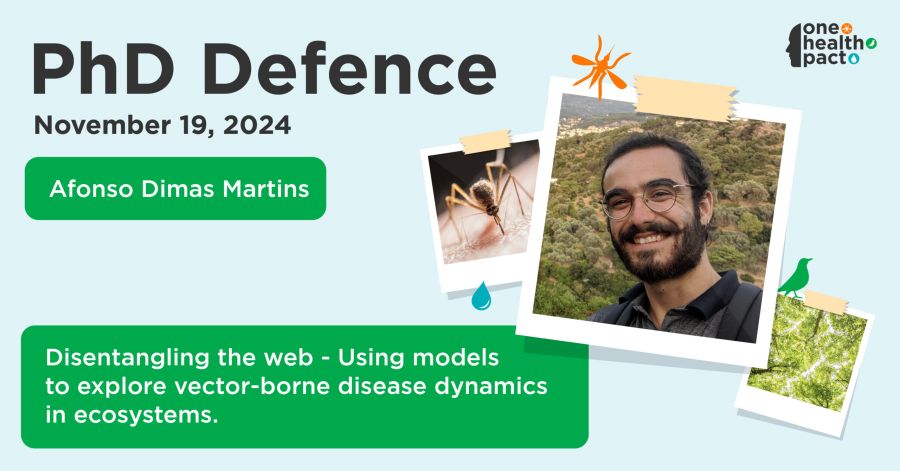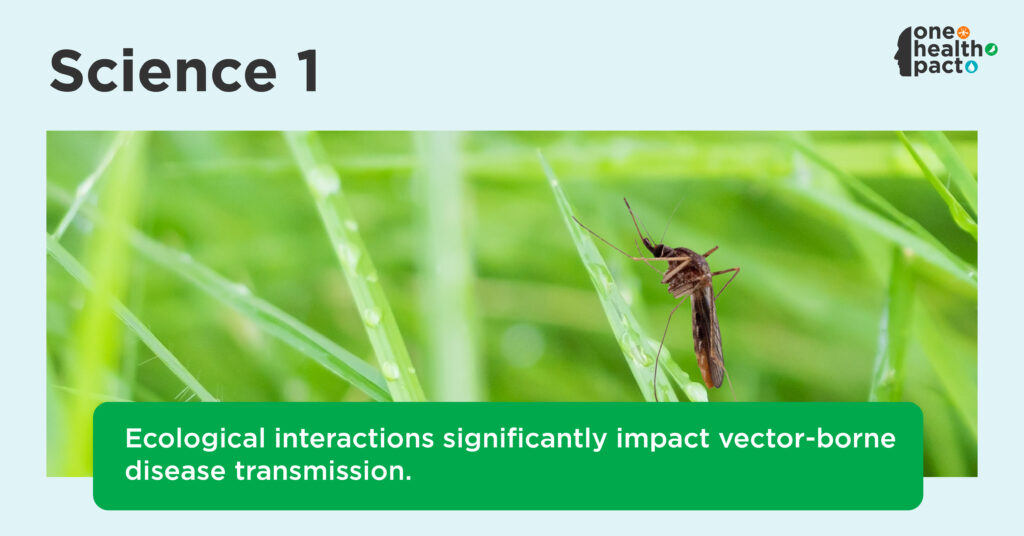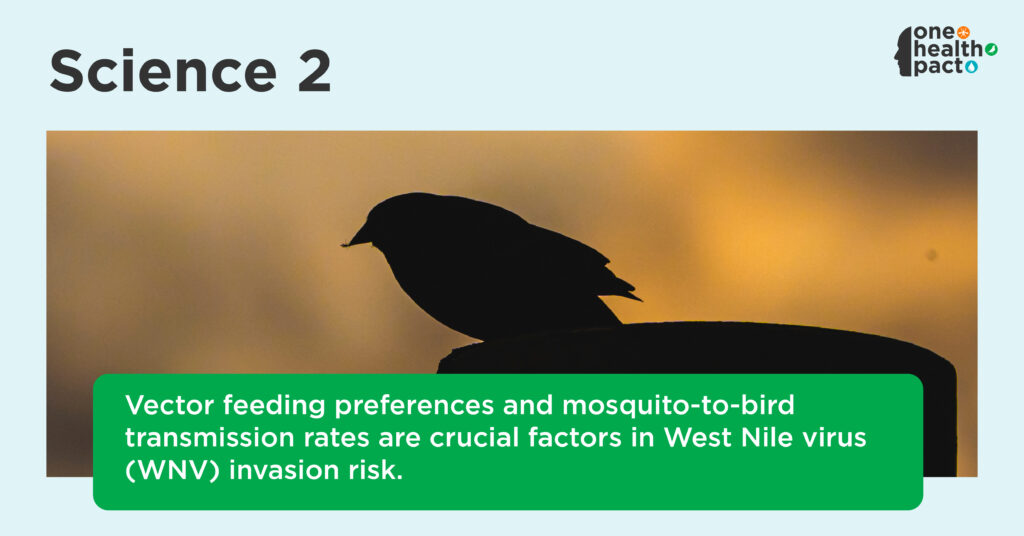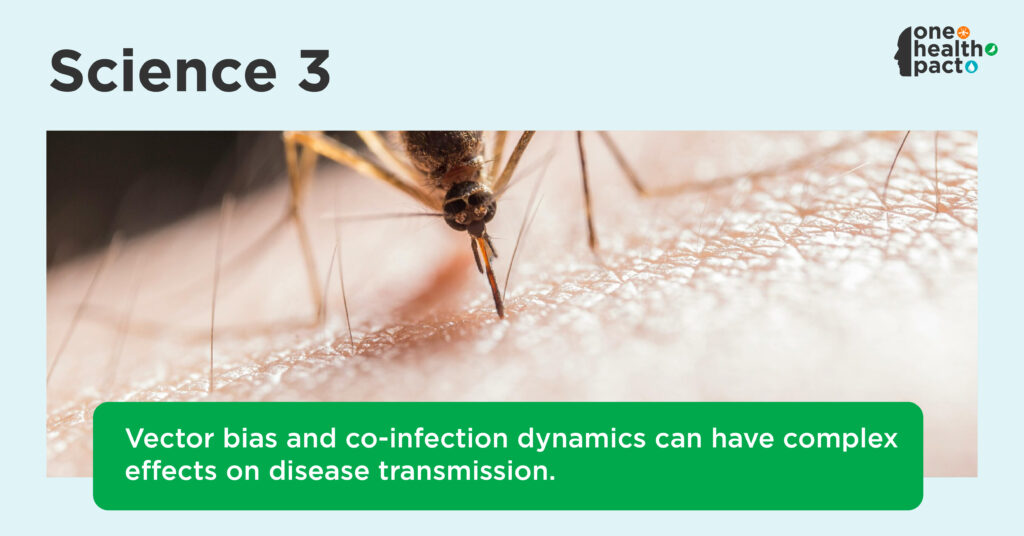PhD Defence: Afonso Dimas Martins

Promotion time for One Health PACT PhD Afonso Dimas Martins! 🦟💧🐦⬛
On Tuesday, the 19th of November, Afonso Dimas Martins successfully defended his PhD thesis titled: ‘Disentangling the web – Using models to explore vector-borne disease dynamics in ecosystems’ at the Universiteit Utrecht.
SCIENCE in 3 – Three key findings from Afonso’s research:

💧 Science in 1 – Ecological interactions significantly impact vector-borne disease transmission. The presence of multiple competing vector species tends to lower the basic reproduction number (R₀), while host competition increases the risk of disease invasion. Non-competent hosts, typically thought to dilute pathogen effects, can actually amplify transmission under strong competition with competent hosts.

🐦⬛ Science in 2 – Vector feeding preferences and mosquito-to-bird transmission rates are crucial factors in West Nile virus (WNV) invasion risk. Natural habitats are generally more susceptible to WNV invasion, with rural areas also at risk under climate change scenarios. Different mosquito types (Culex pipiens pipiens and Culex pipiens molestus) play varying roles in virus amplification depending on the habitat.

🦟 Science in 3 – Vector bias and co-infection dynamics can have complex effects on disease transmission. While vector bias can facilitate the introduction of malaria and Usutu virus in susceptible populations, both vector bias and co-infection mortality reduce long-term infection rates for both pathogens. This suggests that avian malaria is unlikely to promote Usutu invasion.
The full thesis by Afonso is available here.
One Health approach
These PhD projects from the One Health PACT consortium explore the complex interplay between mosquitoes, viruses, ecosystems, and public health. Together, they provide new insights into disease dynamics, environmental drivers, and the neurological impact of mosquito-borne viruses, while also addressing how scientific knowledge can inform preparedness and policy. Collectively, the research exemplifies the power of a One Health approach to tackling emerging infectious diseases.